Related Research Articles
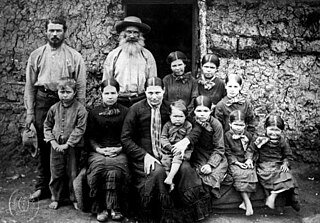
Boers are the descendants of the proto Afrikaans-speaking Free Burghers of the eastern Cape frontier in Southern Africa during the 17th, 18th, and 19th centuries. From 1652 to 1795, the Dutch East India Company controlled Dutch Cape Colony, but the United Kingdom incorporated it into the British Empire in 1806. The name of the group is derived from Trekboer then later "boer", which means "farmer" in Dutch and Afrikaans.

Afrikaner Calvinism is a cultural and religious development among Afrikaners that combined elements of seventeenth-century Calvinist doctrine with a "chosen people" ideology based in the Bible. It had origins in ideas espoused in the Old Testament of the Jews as the chosen people.

Christiaan Frederick Beyers Naudé was a South African Afrikaner Calvinist Dominee, theologian and the leading Afrikaner anti-apartheid activist. He was known simply as Beyers Naudé, or more colloquially, Oom Bey.

Pretoria Boys High School is a public, tuition-charging, English-medium high school for boys situated in the suburb of Brooklyn in Pretoria in the Gauteng province of South Africa, founded in 1901 by Alfred Milner, 1st Viscount Milner.

Stephanus Jacobus du Toit was a South African nationalist, theologian, journalist and translator. He promoted the Afrikaans language as a symbol of Afrikaner nationalism, launched the first Afrikaans language newspaper Die Afrikaanse Patriot, and translated the Bible into Afrikaans. He was Superintendent of Education in the South African Republic from 1882 to 1889.

The Day of the Vow is a religious public holiday in South Africa. It is an important day for Afrikaners, originating from the Battle of Blood River on 16 December 1838, before which about 400 Voortrekkers made a promise to God that if he rescued them out of the hands of the approximately 20,000 Zulu warriors they were facing, they would honour that day as a sabbath day in remembrance of what God did for them.
Afrikaner nationalism is an ethnic nationalistic political ideology created by Afrikaners residing in Southern Africa during the Victorian era. The ideology was developed in response to the significant events in Afrikaner history such as the Great Trek, the First and Second Boer Wars and the resulting anti-British sentiment and Anti-communism that developed among Afrikaners and opposition to South Africa's entry into World War I.
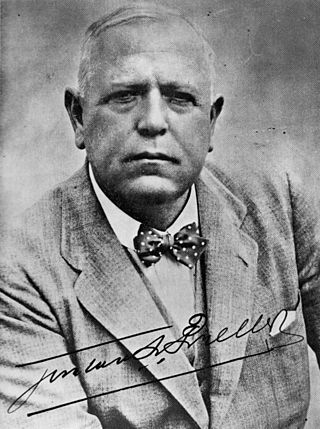
Gustav Schoeman Preller was a journalist, historian, writer and literary critic. He fought for the recognition of Afrikaans. Preller helped the Afrikaner to realize the importance of the history of South Africa. He made great contributions to the writing of South African history, through his research and literature. He also contributed greatly to making South Africans aware of the legacy of the Voortrekkers and also played an early part in planning the Voortrekker Monument.
Bok van Blerk is a South African singer-songwriter who sings in Afrikaans. He became famous in 2006 for his rendition of "De la Rey" by Sean Else and Johan Vorster.

CVO Skool Pretoria is a private Afrikaans, Christian school. The school is located adjacent to Shere Smallholdings, approximately 10 km to the east of Lynnwood, Pretoria, South Africa.
Afrikaners are a Southern African ethnic group descended from predominantly Dutch settlers first arriving at the Cape of Good Hope in 1652. Until 1994, they dominated South Africa's politics as well as the country's commercial agricultural sector.

Raslouw School is a private Christian K-12 school in Centurion, Gauteng, South Africa. The language of instruction is Afrikaans and focuses on English language education.
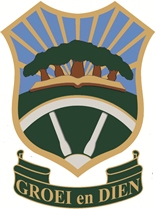
Die Hoërskool Wonderboom is a public Afrikaans medium co-educational high school situated in the suburb of Wonderboom South in Pretoria in the Gauteng province of South Africa, on the southern slopes of the Magaliesberg, The learners are known as the Wonnies

Hoërskool Voortrekker is a public Afrikaans medium co-educational high school situated in the municipality of Boksburg in the city of Ekurhuleni in the Gauteng province of South Africa. The academic school was established in 1920.

Adriaan Nicolaas Petrus Pelzer was a South African Afrikaans academic, historian, author and Professor at the University of Pretoria, South Africa. He retired from the University of Pretoria as vice rector and acting rector in 1980. Among the books he published are the following "The Afrikaner-Broederbond: First 50 Years (1980)" and "Verwoerd Speaks: Speeches 1948–1966 (1966)". He was also member of the "National Monuments Council" and in 1978 received the Laureate Award from the University of Pretoria. The Laureate Award is the highest award granted by the University of Pretoria. From 1965 to 1978 he was vice president and a member of the executive committee of the Northern-Transvaal Rugby Union, and a life member from 1979.
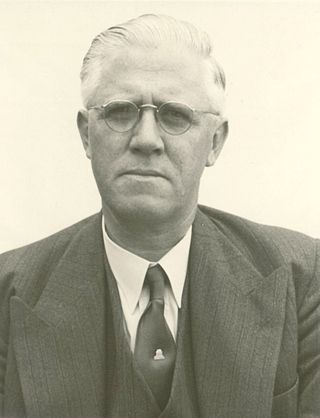
Pierre de Villiers Pienaar (1904–1978) was a South African Afrikaans academic and Professor at University of the Witwatersrand (Wits) and later at University of Pretoria, who pioneered Speech Language Therapy in South Africa and specialising in Audiology and Lexicography as well as being an Afrikaans author. As Lexicographer in 1973, he was part of the group of authors that established the Afrikaans Explanatory Dictionary alongside Prof M.S.B. Kritzinger and Prof F.J. Labuschagne.
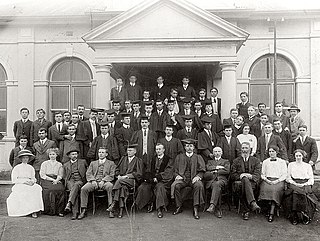
Potch Gim is a public Afrikaans medium co-educational high School in Potchefstroom, North West, South Africa.
Jozua Francois Naudé was a South African pastor, school founder and co-founder of the Afrikaner Broederbond.
Hoër Volkskool Potchefstroom, colloquially known as Potch Volkies, is a public high school located in Potchefstroom, North West, South Africa.
Afrikaners in Zimbabwe are the descendants of Afrikaans speaking migrants to Zimbabwe, almost all of whom originated from the Cape Colony, Orange Free State and Transvaal in modern South Africa. At their peak they formed 10-15% of white Zimbabweans, but only a small fraction of the greater population. Persons of Afrikaans heritage abound in Zimbabwean society particularly in sports such as cricket, rugby, agriculture, tourism, conservation and traditionally, farming, however few are recognized as such, as unlike South Africa the majority of Afrikaner people are now anglophone and seen as indistinguishable from other whites by greater society.
References
- ↑ "CVO Skole". Archived from the original on 2006-09-26. Retrieved 2007-07-14.
- ↑ "Archived copy". Archived from the original on 2007-03-11. Retrieved 2007-07-14.
{{cite web}}: CS1 maint: archived copy as title (link)